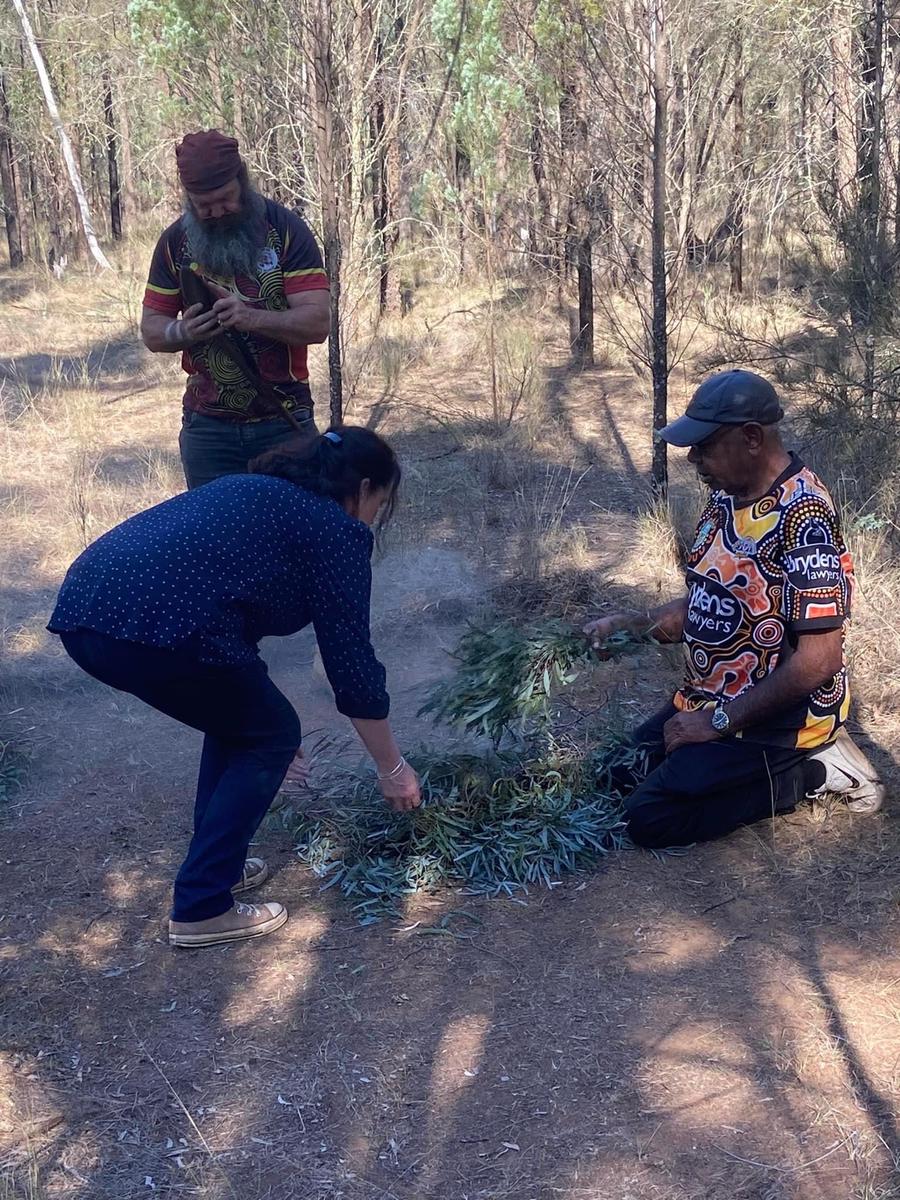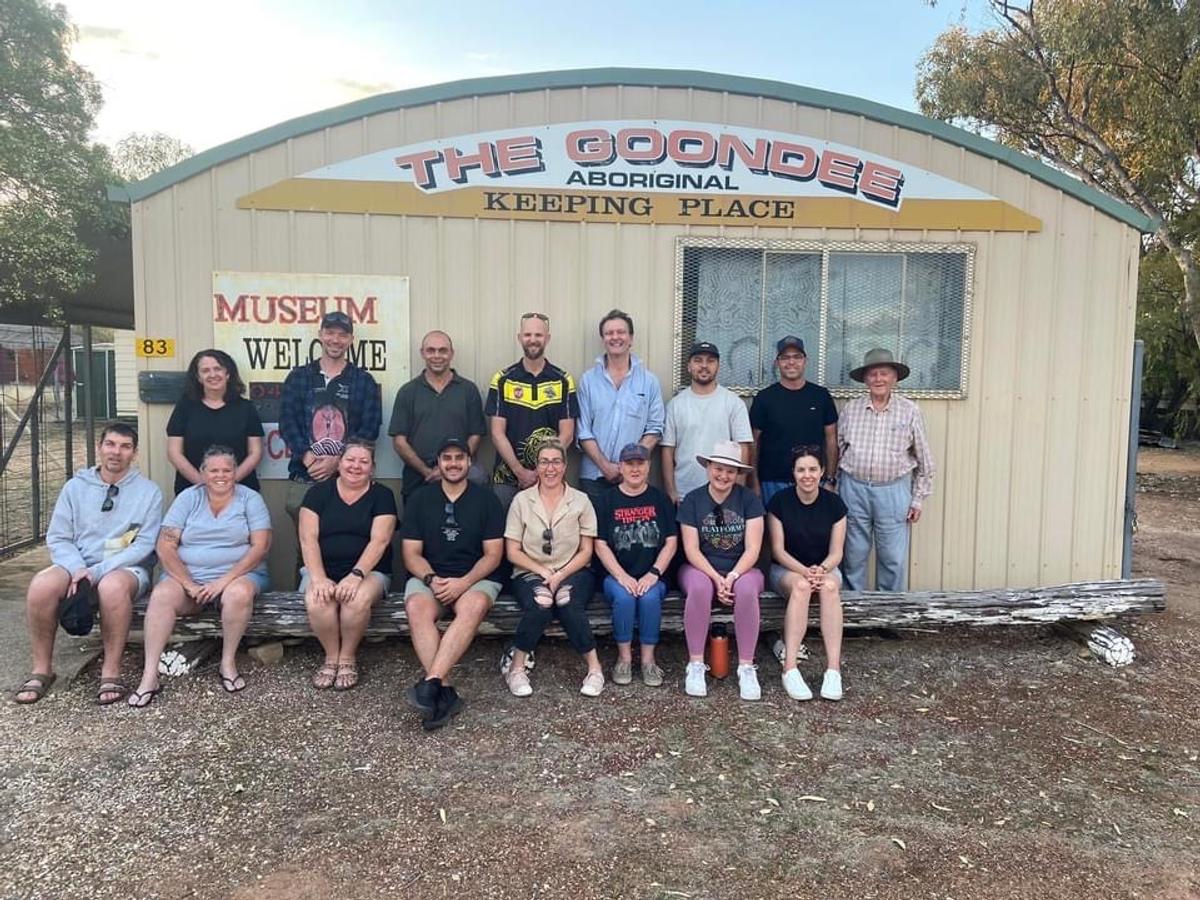Let’s Talk Aboriginal Immersion to Central NSW
Mrs Bridget Jenkins

Let’s Talk Aboriginal Immersion to Central NSW
Mrs Bridget Jenkins
The Let’s Talk Aboriginal Immersion was created by Ualarai woman Cassandra Gibbs more than 25 years ago in partnership with the Edmund Rice Centre (ERC) and now also with Edmund Rice Education Australia (EREA).
St Virgil’s College staff members Mrs Sherry Coy and Mrs Bridget Jenkins were among 14 participants selected from Australian Edmund Rice schools, Edmund Rice ministries and Edmund Rice Community Services to attend this incredible experience on Wiradjuri, Kamilaroi and Ualarai Country.






"We began our journey in Dubbo with a Welcome to Country and Smoking Ceremony given by Aboriginal organisation Milan Dhiiyaan. Over the next seven days we travelled 2,500 km on a great northern loop, through Collarenebri, Moree, Lightening Ridge, Goodooga and Brewarrina, Walgett and back to Dubbo.
We visited the site of the 1836 Myall Creek Massacre and walked the Myall Creek Memorial Path, spent time amongst the colourful devotion of the Collarenebri Aboriginal cemetery, followed in the footsteps of Aboriginal activist Charlie Perkins Freedom Rides in the 1960’s and reflected on his story at the Moree Swimming Pool, one of the most famous symbols of segregation from that time. From there we travelled to Lightening Ridge and spent time learning first-hand about the Aboriginal missions and reservations from Tom Barker at the Goondee Aboriginal Keeping Place. At the Goodooga Central School, we spent three amazing days with dedicated and extraordinary staff and their 35 Aboriginal students from K-12.
We learnt about Bush foods in the region from Aunty Rhonda Ashby and visited the Brewarrina Fish Traps, observing swimming fish still being trapped amongst the carefully constructed ancient rock placements. We walked slowly amongst the sorrow of the Hospital Creek Massacre site and Old Brewarrina Mission.
The Aboriginal people who shared their experiences with us were all connected to the places we visited; either through forced removal and/or family relationships. I think that was important, it came through in their pride, love, knowledge, and detail. It was also humbling to be welcomed so generously into their homes, histories and lives.
I returned with a much-heightened sense of responsibility as an Australian citizen and as an educator. As Andrew Blackett from Edmund Rice Camps Tasmania said in our final reflection, ‘we can’t unsee or unhear the things we saw and heard’. This means we must honour this experience by stepping up and challenging the big things but even more importantly the everyday or seemingly little things that contribute to ongoing injustice, marginalisation and that great sense of restlessness still present in this country today."

